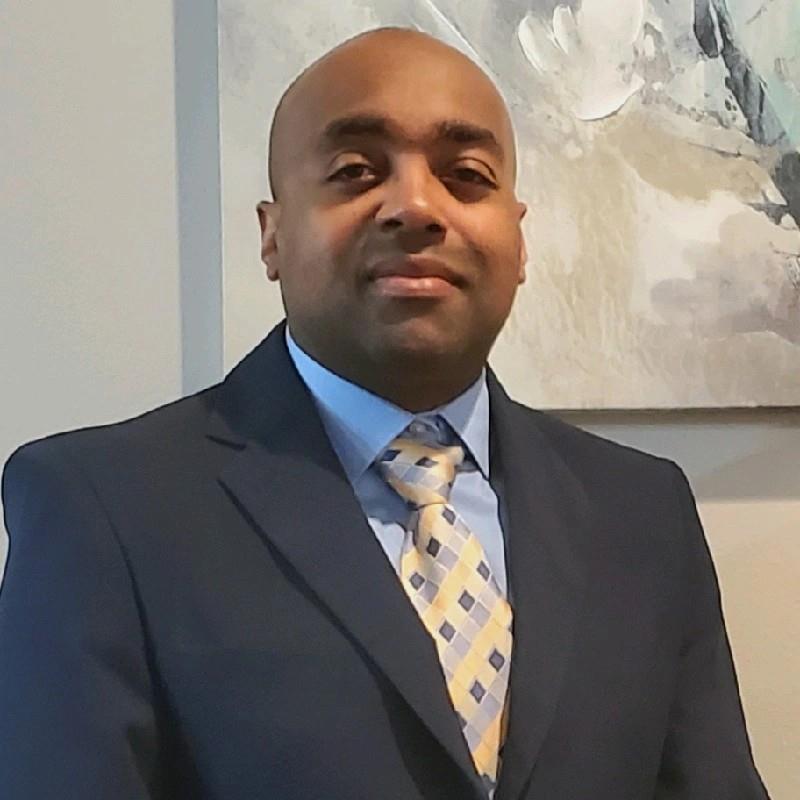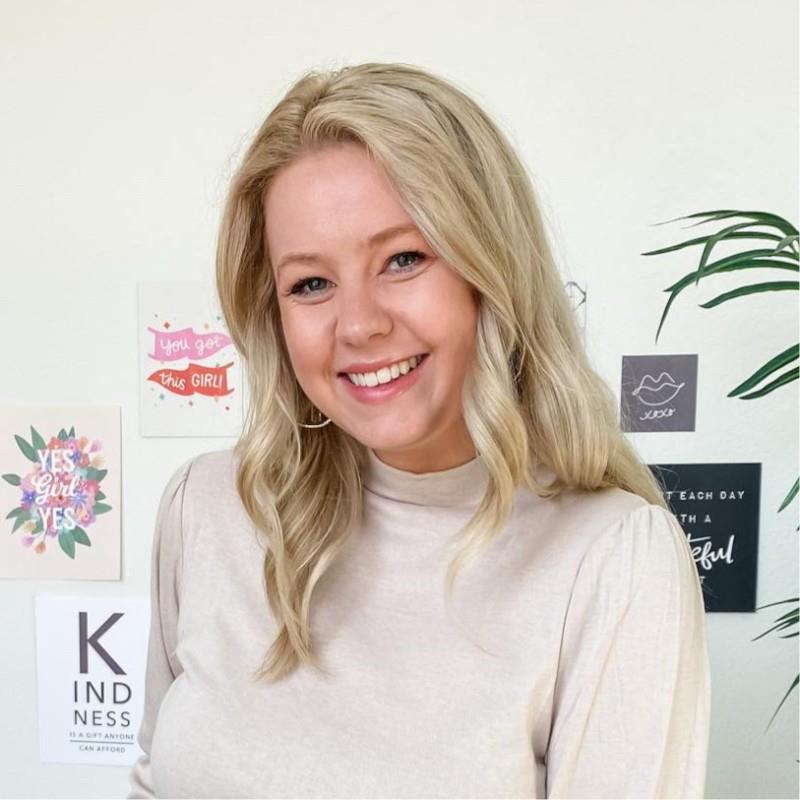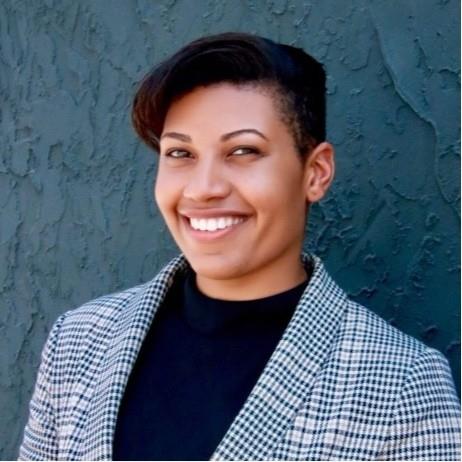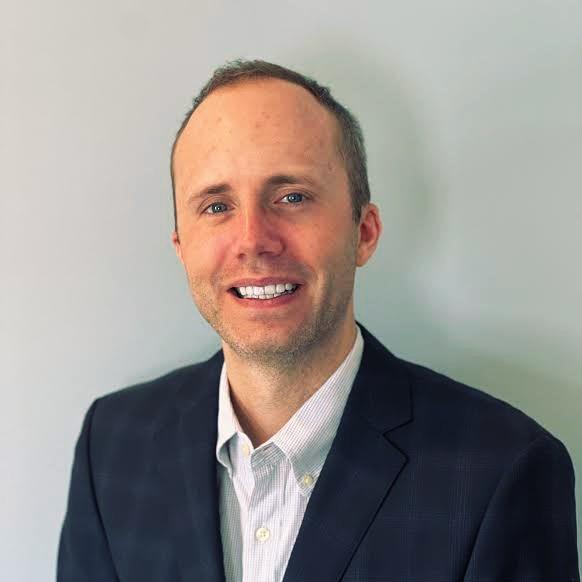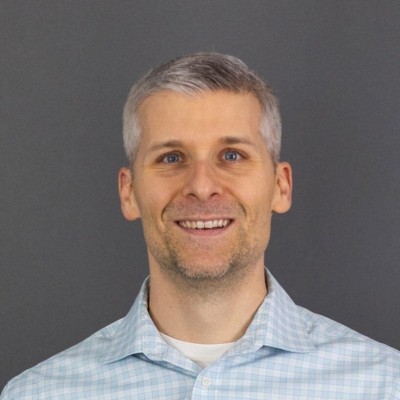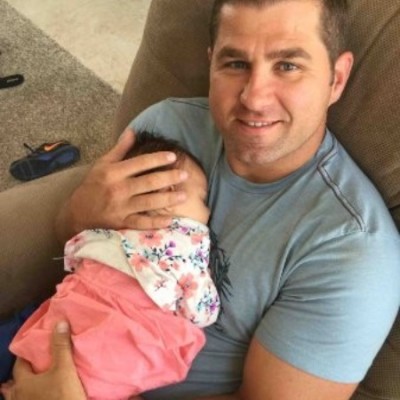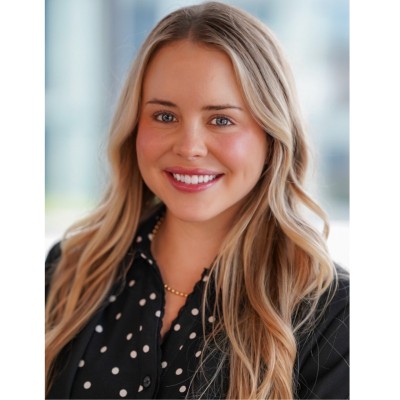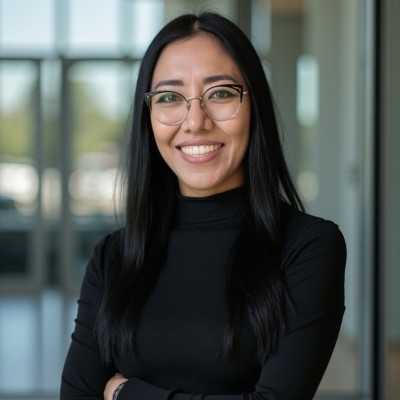Drug addiction is a mental health problem, and it comes with a lot of social and psychological factors. No one just wakes up one morning and decides that they’re going to do drugs. The problem comes from somewhere else, and it’s in going to that root cause that most initiatives to tackle the drug problem fall short. This is what Zack Cooper wrestles with every day. In his medical startup, he addresses the need for substance abuse mitigation in South Carolina using a unique approach where patients can come just like they’re going to a doctor’s clinic. Zack puts a lot of focus on the ongoing (and worsening) opioid crisis that plagues the state and all of the US, and his insight into the topic is one that every health professional can learn from. Tune in and learn a ton from this fascinating conversation!
The CE experience for this Podcast is powered by CMEfy – click here to reflect and earn credits: https://earnc.me/wRCLeJ
—
Watch the episode here
Listen to the podcast here
Addressing Mental Health And Drug Addiction With Zack Cooper
In this episode, we have a bit of a unique episode. It’s Red Ribbon Week so we want to have an episode that highlights the importance of remaining drug-free and the importance of living a drug-free life. We have with us, Zack Cooper. He’s working for a company that is an outpatient service that helps people get off of opioid drugs. They see a lot of different things but they primarily focus on getting people free from opiates. We’ve seen TV shows highlight how significant the opioid crisis has hit the United States.
Unfortunately, it’s something that still has not been managed well enough. It’s still out of control and affecting a lot of people. There’s been such a crackdown on providers who provide opioids to patients so patients are turning to the streets. They’re turning to street drug makers, which are using fentanyl in a lot of these medications or other medications in a lot of these drugs that are making it worse for people killing people and making the addiction ten times worse. It’s organizations like Medasic that are a group of physicians and nurses that have their hearts in the right place that are trying to help patients get off of these drugs and have a better life.
In this episode, we talked with Zack Cooper. He tells us about the significance of the epidemic and what’s going on. We did start the conversation. This episode is unique in that it jumps right to the middle and beginning of the conversation. We talk more and more about what’s going on, what they’re doing about it, what they see for the future and even how we can be a part of the solution. As always, thank you for reading. We do our best to bring you guests that are pioneering, trailblazing and bringing innovation to the world of medicine. I do hope you enjoy this interview.
—
Zack, what’s going on? Talk to me. Where are you calling us from?
Greenville, South Carolina.
First off, have you been on a podcast before?
I’ve never been on a podcast before.
This is a whole new thing for you?
I listen to them every day but have never been a part of them.
Have you tuned into ours?
I have to be honest. I have a big playlist of medical sales, medical information, news and innovation. They play all day every day. Some weeks, I’m on the road for about 600 to 700 miles so I listen to a lot.
Tell me a little bit about your organization and the role you play.
The company started in 2020 right before COVID. There are 3 founders, 1 is an emergency medicine position and 2 are critical care providers. Historically, most of my experience throughout my nursing journey has been in ICU. The three of them got together one day and saw that the opioid pandemic is running rampant in South Carolina and the nation as well. They looked at ways to get ahead of it. By the time someone ends up in the ER or ICU, that’s probably not a good sign if it’s drug-related, whether it be an overdose or complications from drug use.
They started our first clinic in Greer, South Carolina, which is a little East of Greenville. It’s where the giant BMW plant is. That’s where most people know where Greer is. We are 6 offices across the upper half of the state and we’re working on 1 in North Carolina. The things we do is anybody that may have an addiction to opiates or substance use disorder. Opioid disorder is what it’s classified as. We see them on a weekly basis. We try to model our clinics like a regular doctor’s office. It’s not like the old-school thing when you hear about a drug use clinic, you think of long lines, getting once-a-day dosing and opening bright and early in the morning.
We modeled our practice like a regular doctor’s office. People make their appointments and they come in during regular hours. Every week, they meet with one of our providers. It’s like, “How’s your week been? How’s everything going? Is everything going well? How’s your medicine?” For medication, we use buprenorphine in a combo therapy or a single therapy. The common names are Suboxone or Subutex. That’s what we use in most of our treatment plans. We’ve had pretty decent success.
By running it as a normal doctor’s office and making the visits easy to attend, not starting at 5:00 AM and closing at noon, we accept all insurances that will get credentialed with us, even Medicaid. I don’t know of many other recovery places that will accept Medicaid other than the state-run ones. As with all state and federal-run organizations, they’re very backed up. We get people in within 24 hours if they call in a crisis. Our goal is to get them on the same day. If not, the very first thing the next morning.
In general, how many patients are you guys seeing?
Company-wide in a week, we see over 600 patients, 100 patients per clinic.
You’re keeping close tabs on these patients. These are visits so nothing is in-house. These patients are all outpatients. They come by, get checked up, get their medication and go on with their lives. What got you into this? If we go back to your career, you started as a nurse. Has addiction been something you’ve always wanted to be a part of early on in your nursing career or is it something you grew to love? What happened?
To be honest, my nursing career was in ICU. After 5 or 6 years in ICU, I got involved in research and community-based health. The strategies that were going on and a lot of things we would see in the ICU were very preventable, things like congestive heart failure, COPD flare-ups or diabetic issues. A lot of the problems could have been solved with community-based care. Either somebody getting access to their insulin if it’s affordable or not or their diabetic treatment supplies. Someone teaching a patient with congestive heart failure, an appropriate diet and helping them afford healthier groceries because we know that a lot cheaper can beat poorly. I got into that and I didn’t know where to start and fit in and what was going on.
My first adventure into the outside hospital world was a senior living community. I thought it was a cool concept if seniors are living together in one neighborhood and a nurse was on staff to check in with them. While I was there, I met the hospice world, hospice sales and the ins and outs of hospice care. That’s where I ended up for a little over two years. While I was working in hospice, one of the providers reached out to me and said, “I’ve been telling you about the startup I’ve been working on. We’re to a certain point we need some help. Would you be willing to come on board?”
Addiction itself is not what drove me to this but it’s seeing a huge problem and need in our community and helping people. That’s my passion. When you see the communities around here, I grew up in a very rural small town that was based solely on a textile mill. It doesn’t exist anymore. Drug use is pretty high around here. It’s finding a problem that’s affecting my community and working 100% toward a solution.
How long have you been working in the opioid addiction space?
I came on board a few years ago.
Opioid addiction has been around for a while. I remember back in my pharmaceutical sales rep days and I’m talking as far as 2009 or 2010. I would see some primary care providers. They were giving opioids like the wind. Back then, it wasn’t frowned upon and a lot of patients would come and want more. These providers would make a ton of money. They became should be called pill mills where they would be writing hydrocodone or oxycodone like the wind 30 to 40 scripts a day and they’d be profiting significantly from it.
It got out of control and then ultimately, people started dying from the opioid crisis. It blew back in the pharma companies. Suboxone came around and we are where we are now. We’re in 2022 so a lot has happened since 2010. Would you say that the opioid crisis has gotten a pretty good handle on it? Is it still rampant as it used to be years ago? How would you say it’s changed in the last few years?
I don’t think they’re even close to having a handle on it to be honest. Years ago, doctors were writing prescriptions and lots of them were helping. Patients may have been in pain to start with and then it got to a point where they needed it to function. My thoughts are once they got strict on doctors, it cut down on some of the corrections and maybe not as-needed prescriptions but where did that leave all these thousands of people that needed it to function on a day-to-day basis? They took away their supply of safe drugs. The issue you’re seeing is street drugs used to cut up and buy pain pills and stuff right off the street.

You have no idea what you’re getting. You might go to buy a Norco and it’s fentanyl or God knows what’s mixed in that pill. That’s one of the biggest issues. It’s hard to get a handle on. As a pharm rep, you probably know that the half-life of fentanyl is longer. Sometimes, Norco is a great drug. It can reverse stuff. Norco is very short-lived and short-acting in the system.
If you give someone Norco, it might wake them up for a minute but if they’ve taken some type of very long-acting med that’s been made in someone’s basement, that med reattaches. It’s the issues we’re seeing and all the issues coming from unclean drug use. The opioid resources and things were a shotgun blast from the government with Suboxone and everybody can get an X waiver. They have to take the class. They got the help out there but then, it became a revenue stream versus anything else.
It’s a revenue stream meaning they’re driving the Suboxone prescriptions but why is that a bad thing?
A lot of doctors I’ve heard will only allow and see patients at a cash charge. They won’t bill for it. It may be you go in and get a 30-day prescription. Around here, the cash-based clinics are $250 to $300-ish a month. You go in and pay that fee. You’re given a 30-day supply of medications. That’s it. Addiction comes with a lot of social and psychological factors. Therapy and support are as important in treating addiction as getting them safe medications. Suboxone can control the physical cravings but it’s not going to teach you or support structures.
[bctt tweet=”Addiction comes with a lot of social and psychological factors. Therapy and support are just as important in treating an addiction as getting people safe medications. ” via=”no”]
It’s not going to give you that better day or that euphoria that you were getting when you were managing your life’s problems.
When I’m out in the community teaching and pushing, the social factor is no one wakes up one day and says, “I’m going to go take fentanyl.” No one wakes up one morning and says, “I’m going to go find some narcotics, take and see what happens.” It’s like drinking and smoking. You’re out with some people. 1 of the 8 people may have a pack of cigarettes and say, “Do you want to try a cigarette?” Everybody grabs one and you’re like, “Sure, why not?” The same thing happens with opiate use. It helps people learn support systems and how to get away from unsafe crowds and bad influences. You can give them Suboxone all day long but it’s not going to the root cause.
Would you say that the amount of people that have an opioid addiction is from the original boon of opiates from providers or is it all from street use and a situation like what you mentioned?
It’s a combination. We see people from all walks of life on a day-to-day basis. The government branch for substance abuse and mental health guidelines usually says it’s middle-aged, blue-collar, White males are the demographic of that opioid use disorder. With that demographic, I’m thinking that’s some guy that’s probably working in a factory, construction or a trade job and gets hurt on the job, tweaks his back, knee or shoulder goes to a doctor, gets pain medication and becomes addicted.
Years down the road, we know how addictive opiates are to the human body. We think it revolves around that. Are there people whom one day tried it on the street with some friends? Absolutely. The majority of people we see are working. They were prescribed it after surgery but not in any malicious way. A lot of it is from that original giving it out to help anything. We know it’s that addictive.
What are some of the more uncommon demographics that people might not know about that you’ve seen when the opioid addiction crisis hit?
That’s the common ones. It’s the blue-collar, middle-class, White male. We see people from all walks of life. I was reading an article talking about the rise in opiate use among the African-American population. It was a big rise in the African-American population and I’m thinking about the Hispanic population as well. It’s trying to alter treatment courses and therapies. Do new demographics come up? Do we need to do more community based versus doctor-office-based? To be honest, it affects anybody.
What’s going on with the patient that you see? How is fentanyl making this worse? Is it people who are dying? Is it people who are getting addicted in a different type of way? What’s happening?
All of the above. When it all started and everybody was writing prescriptions, it was a double-edged sword. When they cut down the prescriptions, we’re taking away the unsafe practices of willy-nilly writing of controlled medicine because someone asked for it or you feel like it might be helpful. We’ve put things in place that make sure the right medicine gets to the right person.
The other side of that is it removed safe medication from the streets and people who were addicted. They’re still trying to get their medicine or drug of choice. You can’t go buy an Oxy on the street anymore. You can’t go grab a Lortab or Norco on the street anymore. You might think that’s what you’re buying but it’s some pressed pill from somewhere that’s more than likely not what you think it is.
We’re seeing a lot of fentanyl. They’re trying to dose out in their pill factories. Fentanyl is a lot more potent than regular pain medication. That’s 100 times or 1,000 times stronger in the same dose. There are people who may not be chemists or someone that knows how to dose things out correctly. That’s a lot of times deaths and the things like that because we have trained professionals trying to dose out dangerous drugs. We’re hanging out Norco and we’re first responders, police officers and firefighters on how to use Norco.
However, fentanyl and these new designer drugs, the Norco may work for a second or not at all. If they’re trying to get them into the emergency room, they end up on life support. It’s a vicious cycle. It is making it harder for people because, in this world where we dose Suboxone and try to dose it according to what someone’s usage was, we try to keep them safe and try to keep their cravings in check. Fentanyl is a little bit harder to find in that happy medium pharm because they’re used to such a potent amount of medication in their system. What else have we seen? We’re seeing things that fentanyl mixed with other things. You don’t know.
What are some of the success stories that you’ve been able to witness with people that came in? They were in bad shape and you guys were able to get them on Suboxone or something that was able to alleviate their addiction. Talk to us a little bit about what you’ve seen there.
There have been many times when we would have someone who finally reach the breaking point that it was like, “I have to get help.” I’ve had folks come in that were homeless. We get them on the right track and start working to get them resources. Those same people may have graduated or may still come in. They have jobs or visitation rights with their children and even have gotten their children back. You don’t even recognize them from day one. I was talking to a patient and I was like, “I wish we had a photo of you when you first came in.” He was like, “I know. Life is different.” What we strive for is to get someone back to being functional in their life, enjoying their life and not being driven by where their next drug is going to come from.
You’ve been in it for a few years. You’re very familiar with the history. You’ve seen quite a bit in the time you’ve been there. Would you still call it an opioid pandemic? Where do you see it going in the next years? Are we going to have a better handle? Is it going to be a lot more of the same? Is it going to be a little worse and we have to anticipate that? Where do you see things going?
Looking back on the years, COVID threw everybody for a loop. Usage of alcohol, drugs or any type of substance increased during that. Rates of depression, anxiety and mental illness skyrocketed during that. That exponentially made the problem worse. However, with that being said, we’ve learned a lot over the past years through the pandemic about how useful telehealth is, mail-order pharmacy systems and getting care and resources to someone’s home.
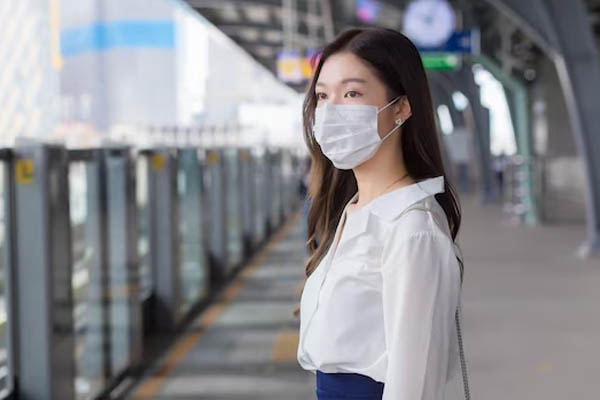
With the number of grant dollars that are coming out from the government as an actual huge push and focus on mental health, we’re going in the right direction. Substance use is a mental health issue. It starts somewhere else because no one goes and decides to use drugs one day. It may be a coping mechanism or something else. With all the things that have been put in place in the past years, there’s a big push on mental health treatment.
[bctt tweet=”Substance use is a mental health issue. It starts somewhere else. No one just wakes up one day and decides to use drugs.” via=”no”]
They’re getting insurance companies to make sure that they’re paying for mental health services. That’s been a big thing in the news. It’s going in the right direction. Will it be completely solved or fixed? I think so. If you look through the history of man, there’s always been something that we as humans partake in. If you get in a different state, alcohol has been around since the dawn of time. Herbal things have been around forever whether it be marijuana, peyote, mushrooms or what have you. There’s always going to be something people take to alter their state of consciousness. With the opioid pandemic, I’m hoping and pretty optimistic that with everything, we’re going in the right direction.
Would you say that marijuana has helped at all when it comes to opioid addiction?
I can’t say for certain. Unfortunately, in South Carolina, it’s highly illegal in any way, shape, form or fashion. There is a lot of research coming out from other states that says it can help with certain aspects of addiction. We’ve known for years the study out West with cancer patients. It helps with their pain. If we can use cannabis to help with pain, then maybe that’s an alternative to opiates.
Zack, this was very enlightening. You gave us the whole scoop on what’s going on out there when it comes to opioid addiction. You’ve only been there for a few years. Is this a field that you plan to stay in for the long haul? Where do you see yourself taking your career over the next few years?
I’ll probably be in it for as long as it’s an issue. I enjoy the company I work for. We’ve built a fantastic team of like-minded individuals who want to help their local community and then expand into other communities to provide the same service. I like helping people. That’s my thing. Will I be in substance use treatment for the rest of my career? Maybe or maybe not. Some may get this everything going and this becomes a well-oiled machine. There’s some other problem affecting the community that I was like, “Let’s give it a try to get a solution out there for this issue.” I don’t know but I see myself here for a while.
For anyone reading that might know someone or might even have an issue themselves, how can they find you?
We have a website. It’s Medasic.com. The website has ways to email us, text us or call us. Any form of communication, there’s a way on our website. If they need help, the government has changed the mental health hotline to 988 like 911. If anybody needs help with any type of mental issue crisis, they dial 988 and they’re directed to someone. AMHSA is always a great resource. It’s AMHSA.net. On their website, you can type in your ZIP code and they can show you all the help in your area like treatment providers, counselors and all of that.
They have tons of nice and very easy-read help packets or information packets. The biggest help for someone in need is proper education and not feeling stigmatized. Most people don’t want help because they don’t want to be labeled anything. Be an addict, a user or anything like that. We found out that it’s listed and qualified as a disease. You go to a doctor to help with it like any other disease.
Last question regarding the clinic. Do you guys see medical sales reps that come in? I’m assuming you have reps for Suboxone and other therapies to help people get off of opiates.
Shockingly enough, the Suboxone reps are so hard to get in touch with. I’ve reached out to them a few times and I was like, “Do you have discount vouchers, sample vouchers or anything like that to try your brand or this formulary?” They never come by. We had a Norco rep come by once. They were trying to get the nasal spray out of discount vouchers for local pharmacies to see if people liked the nasal spray better than the shot. Most reps I see daily are lab reps wanting us to send them lab confirmation testing.
How’s that interaction? What do you do with them a lot? Is it pretty come and go? How’s that working out?
I feel they come in a spurt. I feel like one called me every other day, dropped in and then it’ll be a few months and you won’t hear from anybody. Lab reps have been the biggest thing for confirmation testing. Every once in a while, I’ll get emails or something from medical software. There’s an app that has been shown to help population health management software. Those are the big things we see.
For any of those reading that might want to explore being a rep in the testing space, any advice you share on how to best work with clinical cures?
Find out who the decision maker is. Cold calls probably aren’t the best. A lot of the patients feel about privacy and things like that. Set up or schedule meetings. I always feel that getting to a decision-maker is a lot quicker. I was in sales for hospice for a while and I know what life is like. You got somebody yelling at and you haven’t hit a number or you’re not close to a number. Get out there and go. I get it. This feels a little bit different than the other ones. I’m always willing to chat with someone. Everybody has got a solution to a problem. You talk to everybody and see which solution best fits you. Best fits the patients is what it’s about.
You mentioned hospice sales. When were you in hospice sales?
It was in 2019 and then COVID hit. The nurse in me was like, “I can’t be a telemarketer for hospice. I can’t call you and be like, “I know your mom is dying. Let me tell you about a hospice.” I’m a nurse. You can use me in other ways like going to a home and I do the pitch there but I’m a nurse and I can hold someone’s hand. I can be present going through this time in life. I’ll do that. I love sales. It’s great and fun.
In this role, before we got super big, it was not sales but community reach outs to other providers letting them know how ours worked. If they’re having lots of calls from patients with certain needs, we can take insurance. I went to a lot of the local behavioral health clinics and met with their decision-makers. I was like, “If you guys are swamped and behind, we can take Medicaid. You can send them to me and I will get everything taken care of for them to take some of the load off of you.” We’re doing a lot more community events and education.
Zack, it was wonderful spending time with you. We’re going to have a little lightning round before we let you go. Answer within ten seconds as soon as you can. The first answers that come to mind are typically best. What is the best book you’ve read in the last six months since this conversation?
By who?
Damon West.
What’s that one about?
I saw him speak in a substance use seminar. He ended up in prison and it’s about how he turned his life around and now speaks and helps.
That is interesting. I have to check that one out. Best movie or TV show you’ve seen in the last six months since this conversation?
I don’t know.
I’m thinking you’re much more of a reader.
Yes. I read all the time. I have a toddler so we watch a lot of Bluey.
Best meal you’ve had in the last six months since this conversation?
Since it’s gotten cold, a nice big hot bowl of curry at the Thai restaurant.
Lastly, best experience you had in the last six months since this conversation?
Vacation with the family to the beach. The toddler is walking, talking and stuff. It’s a little bit more fun.
Congratulations on that. That’s awesome. Zack, it was great spending time with you. Where can people find out more about you?
I try to be pretty active on my LinkedIn. If people shoot me messages there, I’m quick to respond. I’m always in the community in the Greenville area. If someone else is local, we’re pushing community education and services here. We’re trying to be out.
Thank you for the time, Zack. Keep on fighting the good fight to keep our patients safe. We look forward to hearing from you in the future.
Thank you for having me. I had fun.
—
That was Zack Cooper. It’s a crazy world we’re living in. One thing I liked that he talked about was how the pandemic taught them different ways they can get in front of managing this epidemic with the opiate crisis. All we can do is pray and hope that these pioneers continue to do the good work they’re doing and continue to come up with better ways to help these patients, get them off of the drugs and get them to live a much cleaner and better life.
One type of sales rep we talked about in this episode is testing sales. I’ve had a few guests on this show talk about what it’s like to work in testing sales. This is the kind of client you might have if you were to be a lab medical sales rep or a diagnostic medical sales rep. You might be seeing clinics like these and talking about what tests they should be using to get in front of what’s going on with these patients.
If that’s something that interests you, then you already know what to do. Visit EvolveYourSuccess.com, select Attain Medical Sales Role and fill out the application. Have a conversation with us about our program, the Medical Sales Career Builder. This program was designed to take professionals with Bachelor’s degrees and get them into medical sales roles from pharmaceutical sales to medical device sales to diagnostic medical sales and testing.
If this is something that’s been a passion of yours and you’ve maybe banging your head up against the wall because you haven’t been able to get in, you’re not getting the interviews, hearing back from anyone or you’re getting the interviews and you’re not getting to that last round and you’re out of options, you’re maybe starting to think, “Maybe this is not for me. I need to explore other avenues.”
If you’re reading this, I’m here to tell you that is false. It’s because it’s become so competitive that you need to do something a little bit different and tap into a resource that understands exactly how to help you present yourself as an outstanding candidate that any employer will take seriously and want to give a chance to and want to give the job to.
We’ve helped over 1,000 people get positions. For the Medical Sales Career Builder alone, hundreds of people have gone through that specific program and we have a 90% success rate. We know what we’re doing here and we want to help you. Don’t leave your career the chance. Don’t give up. Tap into a resource that can make a difference. As always, we do our best to bring you guests that are bringing innovation, trailblazing, pioneering and doing things differently in the medical sales space. Make sure you tune in next time for another episode.
Important Links
- Zack Cooper – LinkedIn
- Medasic
- AMHSA.net
- The Change Agent
- Attain Medical Sales Role
- Medical Sales Career Builder
About Zack Cooper
 Zack Cooper is a masters prepared nurse with clinical experience in ICU and community health settings. He worked in the US as well as the UAE being part of the initial group of ICU nurses starting Cleveland Clinic Abu Dhabi. Zack lived in Abu Dhabi for a little over 2 years and absorbed as much knowledge as he could. Upon returning home to SC he wanted to bring his experience and expertise to apply to the care models in SC. Zack worked in senior living as a resident care director, in hospice as a clinical liaison/ sales rep, and continued his career in hospice becoming a director of nursing. He left hospice to work for a medical start up called Medasic which focuses on substance abuse treatment throughout the state of SC. When Zack started with Medasic there were 2 clinics serving 100 patients each and now Medasic has 7 clinics in both NC and SC seeing 600+ patients each week. He’s passionate about health equality, reducing stigma associated with disease, and community education. On his off time he spends it with his family. Hiking, camping, and reading are some of Zack’s favorite hobbies.
Zack Cooper is a masters prepared nurse with clinical experience in ICU and community health settings. He worked in the US as well as the UAE being part of the initial group of ICU nurses starting Cleveland Clinic Abu Dhabi. Zack lived in Abu Dhabi for a little over 2 years and absorbed as much knowledge as he could. Upon returning home to SC he wanted to bring his experience and expertise to apply to the care models in SC. Zack worked in senior living as a resident care director, in hospice as a clinical liaison/ sales rep, and continued his career in hospice becoming a director of nursing. He left hospice to work for a medical start up called Medasic which focuses on substance abuse treatment throughout the state of SC. When Zack started with Medasic there were 2 clinics serving 100 patients each and now Medasic has 7 clinics in both NC and SC seeing 600+ patients each week. He’s passionate about health equality, reducing stigma associated with disease, and community education. On his off time he spends it with his family. Hiking, camping, and reading are some of Zack’s favorite hobbies.
Love the show? Subscribe, rate, review, and share!
Join the Medical Sales Podcast Community today:
